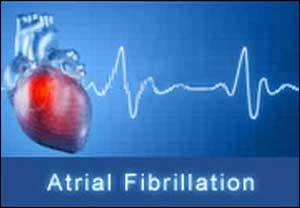- Home
- Editorial
- News
- Practice Guidelines
- Anesthesiology Guidelines
- Cancer Guidelines
- Cardiac Sciences Guidelines
- Critical Care Guidelines
- Dentistry Guidelines
- Dermatology Guidelines
- Diabetes and Endo Guidelines
- Diagnostics Guidelines
- ENT Guidelines
- Featured Practice Guidelines
- Gastroenterology Guidelines
- Geriatrics Guidelines
- Medicine Guidelines
- Nephrology Guidelines
- Neurosciences Guidelines
- Obs and Gynae Guidelines
- Ophthalmology Guidelines
- Orthopaedics Guidelines
- Paediatrics Guidelines
- Psychiatry Guidelines
- Pulmonology Guidelines
- Radiology Guidelines
- Surgery Guidelines
- Urology Guidelines
Edoxaban dual therapy, safe alternative after PCI in AF patients

Paris, France: Dual therapy without aspirin (Edoxaban + a P2Y12 inhibitor) is non-inferior to standard triple therapy (oral anticoagulant, aspirin, clopidogrel) for the prevention of bleeding after coronary stenting in atrial fibrillation patients.
These are the findings from the randomized, multicenter, open-label, noninferiority phase IIIb ENTRUST-AF PCI trial presented at the European Society of Cardiology (ESC) Congress 2019 held together with World Congress of Cardiology in Paris, France.
ESC guidelines recommend a short period of triple therapy (oral anticoagulant, aspirin, clopidogrel) followed by a period of dual therapy (oral anticoagulant + aspirin or clopidogrel) in patients with atrial fibrillation after PCI with stenting.
Andreas Goette, St. Vincenz-Hospital, Paderborn, Germany, and colleagues evaluated the non-vitamin K antagonist oral anticoagulant edoxaban + antiplatelet therapy in patients with atrial fibrillation following PCI.
The trial recruited 1506 patients with atrial fibrillation after successful stent placement for acute coronary syndrome or stable coronary artery disease from 186 sites in 18 countries. They were randomized to a 12-month antithrombotic regimen of edoxaban + a P2Y12 inhibitor or standard therapy with a vitamin K antagonist and P2Y12 inhibitor + aspirin for 1 to 12 months.
The edoxaban dose of 60 mg once daily was reduced to 30 mg per day if one or more factors (creatinine clearance 15-50 mL per minute, bodyweight ≤60 kg, or concomitant use of specified potent P-glycoprotein inhibitors) were present.
The primary endpoint was a composite of major or clinically relevant nonmajor bleeding within 12 months. The primary analysis was performed in the intention-to-treat population. Safety was assessed in all patients who received at least one dose of their assigned study drug.
Also Read: Deep forehead wrinkles harbinger of cardiovascular mortality-ESC Update
Key findings include:
- With 128 (17.0%) events in the edoxaban group and 152 (20.1%) events in the vitamin K antagonist group, a trend toward less bleeding was observed but statistical superiority was not met.
- Bleeding outcomes were consistent regardless of bleeding definitions (International Society on Thrombosis and Haemostasis, Thrombolysis in myocardial infarction score, Bleeding Academic Research Consortium) and their individual components.
- A total of 4 intracranial haemorrhages occurred in the edoxaban group and 9 in the vitamin K antagonist group. Fatal bleeding occurred in 1 patient taking edoxaban and in 7 patients taking a vitamin K antagonist.
- The main efficacy endpoint was a composite of cardiovascular death, stroke, systemic embolism, myocardial infarction, and definite stent thrombosis. It occurred in 49 (6.5%) patients in the edoxaban group, in 46 (6.1%) in the vitamin K antagonist group.
- The edoxaban regimen was noninferior to standard therapy for the composite primary endpoint of major bleeding or clinically relevant nonmajor bleeding.
Also Read: Sleeping less than 5 hours doubles risk of Heart disease : ESC Update
According to the study, the rate of major or clinically relevant nonmajor bleeding was similar to the rates reported in other studies of patients with atrial fibrillation undergoing percutaneous coronary intervention (PCI) and treated with non-vitamin K antagonist oral anticoagulants.
"Edoxaban-based dual therapy (excluding aspirin) can be used safely as an alternative to vitamin K antagonist-based triple therapy to prevent major or clinically relevant nonmajor bleeding in patients with atrial fibrillation following successful PCI for stable coronary artery disease or acute coronary syndrome," concluded Dr. Goette.

Disclaimer: This site is primarily intended for healthcare professionals. Any content/information on this website does not replace the advice of medical and/or health professionals and should not be construed as medical/diagnostic advice/endorsement or prescription. Use of this site is subject to our terms of use, privacy policy, advertisement policy. © 2020 Minerva Medical Treatment Pvt Ltd